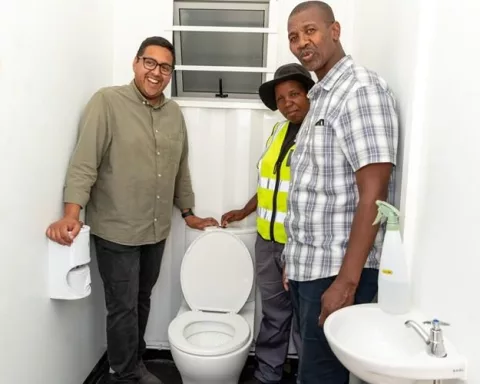A recent development in Cape Town has shed light on the ongoing struggle of vulnerable individuals experiencing homelessness in the City. The City of Cape Town had applied to have a group of homeless individuals evicted from several public sites, including locations in the city center. However, the eviction hearing was delayed after the group, represented by the Socio-Economic Rights Institute of South Africa (SERI), filed a notice of intention to oppose the eviction. While disappointing for the City, the delay has opened up an opportunity for a larger conversation about the root causes of homelessness in Cape Town.
The City’s Perspective: Providing Dignified Transitional Shelter
Mayor Geordin Hill-Lewis expressed disappointment over the delay, stating that the City’s plans to provide dignified transitional shelter and assistance to more people living on the streets will now be postponed. The City believes that no individual has the right to reserve a public space as exclusively theirs while refusing all offers of shelter and social assistance indefinitely. The Mayor also highlighted that the City’s public places serve essential social and community purposes and must be open and available to all.
However, the delay has allowed the City to reflect on its approach to homelessness. Providing social assistance is the best choice for dignity, health, and well-being. While temporary accommodation is sometimes necessary, there is a need for long-term solutions that address the root causes of homelessness. The City should work with organizations like SERI to provide adequate alternative accommodation and support services to individuals experiencing homelessness.
SERI’s Perspective: The Need for Adequate Alternative Accommodation
SERI attorney Khululiwe Bhengu, representing the group of approximately 120 homeless individuals, revealed that the group had approached SERI to oppose the eviction. They highlighted several issues with the City-run Safe Spaces, including the opening and closing hours of the safe spaces. The group needed to be provided with “adequate alternative accommodation” by the municipality. Finally, the group needed to be given time to file their answering affidavits.
SERI’s perspective highlights the need for a more holistic approach to addressing homelessness in Cape Town. Adequate alternative accommodation and support services are crucial, but so is addressing the root causes of homelessness. This includes addressing economic inequality, providing access to education and job training, and addressing systemic issues like racism and discrimination.
Conclusion
The delay in the eviction hearing has opened up an opportunity for a larger conversation about the root causes of homelessness in Cape Town. While the City’s plans to provide dignified transitional shelter and assistance are essential, they must be complemented by long-term solutions that address the root causes of homelessness. The need for adequate alternative accommodation and support services, as is managing the systemic issues contributing to homelessness, is critical. By working together, the City, organizations like SERI, and the wider community can work towards a future where everyone can access safe and dignified housing.












